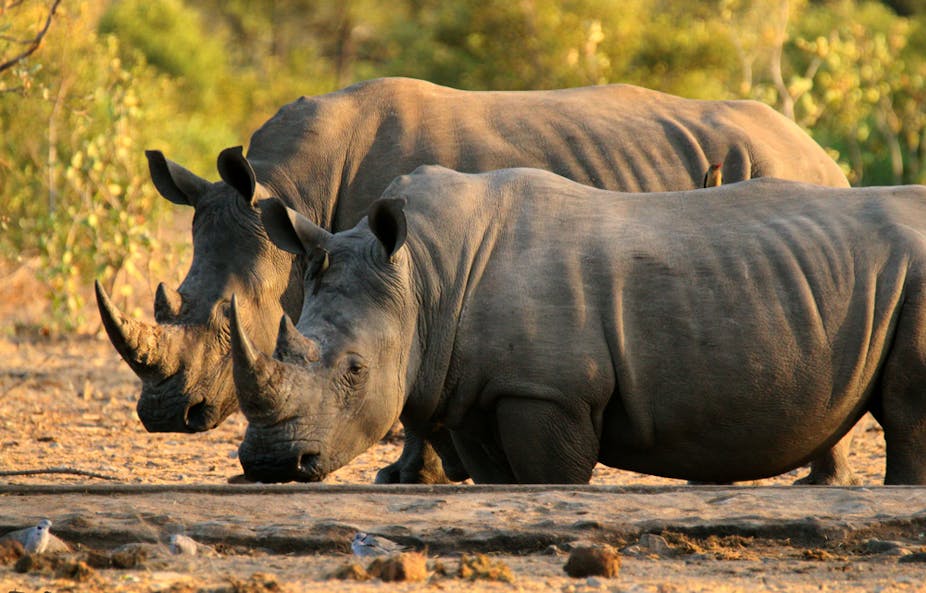 |
| A pair of white rhinos in Kruger National Park |
Prince William, Duke of Cambridge recently demanded the shipping industry to suppress the illegal ivory and rhino horn trade. He indicated that the devastation of animal populations was an "almost unthinkable" ridicule which, if continuing at current rates, would result in no rhinos or elephants left on the planet by the time his children, Princess Charlotte and Prince George, are grown up. While speaking at the 140th anniversary of the UK Chamber of Shipping Annual Dinner, the Duke said he was thankful for the "continued support" of the industry in cracking down on the illegal wildlife trade. However, he stressed that shipping has an essential part to play in restricting transport routes for ivory smugglers and criminal organizations, with "containerized shipping" comprising almost three-quarters of the substantial ivory seizures by weight since 2009. Setting up the rate of the problem, the Duke laid out research showing record-numbers of substantial ivory seizures, poaching, and smuggling of elephant ivory as being in the highest level in 25 years, and the seventh year in a row of growing rhino-poaching in Africa. He further added that when it comes to poaching, one ranger is killed every week while trying to protect the animals but the illegal trade continues. In addition, he stressed for more collaboration saying that the evidence not only marks the importance of the shipping industry but the huge impact it can have on the trade.
I really think it is very essential that shipping industries around the world should take action in cracking down on the illegal wildlife trade. They should close down transport routes for smugglers of ivory, rhino horns, and other products of endangered species. The illegal wildlife trade not only threatens security and sustains organized crime, it also deprives developing countries of a "natural resource that will contribute to their future prosperity." Prince William, in his speech, stated that one ranger is killed every week when battling poaching. However, that is not always the case. Just recently, renowned wildlife trade investigator Esmond Bradley Martin was killed in Nairobi. Although the motive is unclear, it clearly indicates how the illegal wildlife trade is as dangerous as trafficking of drugs, firearms, and human beings where anyone fighting it could end up getting killed. That does not mean that the world should give up battling this ongoing war against poaching and the illegal wildlife trade. The world needs to step up its efforts in combating poaching and the illegal wildlife trade, especially when investigators and other specialists who play a key role in battling these atrocities end up getting killed somehow.
In my opinion, the biggest hurdle in battling poaching and the wildlife trade is corruption. One example was recently seen in South Africa where even though the number of rhinos poached in the country was lower in 2017 than 2016, corruption is slowing down the progress. There are so many loopholes in the justice system, that the poachers either end up with lighter sentences or are acquitted of any charges brought against them. In addition, the process of prosecuting major kingpins of rhino-poaching is repeatedly delayed due to incompetence in the justice or lack of enthusiasm from law enforcement. This is not only limited to South Africa, but it is also happening in other countries that are rife with poaching and illegal wildlife trade activities. Corruption, in general, is hindering the battle against poaching and illegal wildlife trade in several ways, including deaths of prominent investigators of these crimes against nature. It has a negative influence on politics, the justice system, and many other aspects of the global society. This is why it is highly crucial to fight and suppress corruption, in order to put a stop to poaching and the illegal wildlife trade.
View article here
No comments:
Post a Comment